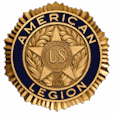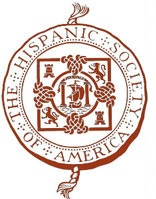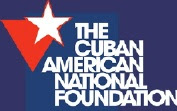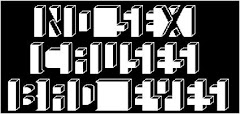Marine Corps Newsby Cpl. Timothy T. Parish
-->
ABOARD USS PELELIU (LHA-5) — For some, the ticket to freedom is granted through citizenship in the United States. The guarantees of life, liberty and the pursuit of happiness are a birth-right passed from one generation to the next, a free admission into the land of the free and the home of the brave.
-->
ABOARD USS PELELIU (LHA-5) — For some, the ticket to freedom is granted through citizenship in the United States. The guarantees of life, liberty and the pursuit of happiness are a birth-right passed from one generation to the next, a free admission into the land of the free and the home of the brave.
For others, like Lance Cpl. Eric Hirwa, freedom is the gift for an indomitable spirit. The desire to earn what is, for most other Americans, freely given. This is Hirwa’s story.
“I was born in Central Africa, in Rwanda. That’s where I was raised until I was fourteen-years-old. My childhood was very regular, raised in a happy family,” said Hirwa, an aircraft mechanic with Medium Marine Helicopter Squadron-165, 15th Marine Expeditionary Unit. “It was a simple life. I had everything I needed.”
Then, in the early 1990s, Rwanda began to disintegrate. The civil-war which ignited between separate Rwandan ethnic groups displaced hundreds of thousands and took nearly a million lives. This is the backdrop of Hirwa’s early life.
“That was a terrible time. I was a little boy. My family was a target because of what was happening at that time. It was a civil war, with two ethnic groups fighting each other,” said Hirwa.
According to Hirwa, in 1994 at the height of the mayhem in Rwanda, family connections with the American Embassy helped spare the lives of Hirwa and his family and many of his neighbors. This was Hirwa’s first interaction with the Few and the Proud.
“My family was in a bad situation, we were about to lose our lives, every one of us. American Marines who were on guard at the embassy came to my house and helped my family to escape,” Hirwa explained.
The rescuers were just on time, according to Hirwa. Facing constant threat and nearly starved, countless Rwandans found refuge in neighboring countries with help from Marine Corps Embassy Guards in Rwanda, Hirwa said.
“I don’t remember the Marine who picked me up, I didn’t understand any English then, but I knew when I saw them that I was saved,” said Hirwa. “At the time I was heading for three months with no food and no water. I was hungry and dirty, and he put me in a car in the Red Cross convoy and they said they were American Marines, and I knew they were my saviors.”
After being saved from Rwanda, Hirwa lost track of his family who had been evacuated on a separate Red Cross convoy. It would be years before they were reunited. This was Hirwa’s challenge.
As a young man in the Congo and then in Kenya, Hirwa joined the throngs of Rwandans displaced during the genocide living in refugee camps, according to Hirwa.
“My family, they kept going. They didn’t know if I was alive or dead. They kept going and went to another country,” said Hirwa.
Hirwa’s family, through connections with U.S. representatives, tried in vain to locate Hirwa. Unable to do so, they uprooted and left for the United States.
“They came to the U.S. before they knew where I was. By that time I was about to finish high school in Kenya and I used the Red Cross to track my family,” said Hirwa. “[In 2001] I came to be with my family in the U.S.”
A new immigrant, Hirwa dreamed of becoming an engineer. Learning English during a three-month course at a local school, Hirwa began studies at Wright State University in Ohio. He earned his degree in mechanical engineering and in 2006 decided to repay his adopted country through military service. This was Hirwa’s debt to pay.
“Not only did [the Marines] save me and my family, they also saved other people. As I grew up, I tried to know more about the Marines,” said Hirwa. “I kept doing my own thing, but I didn’t forget about what those people called Marines did for me.”
In Hirwa’s opinion, the Marine Corps offered the greatest chance to serve, given the tip of the spear nature of the Marines. With that, he began his quest to join the ranks of America’s 9-1-1 force in readiness.
“I said ‘I’m going to be a Marine.’ No one tried to recruit me, I just walked into the office and they said ‘Why do you want to be a Marine,’ and I said I have a reason. I have to pay back what they did for me,” said Hirwa. He began his service in October 2006 as a recruit at Parris Island, S.C.
After facing the challenges of surviving in Rwanda and as a displaced refugee, Hirwa is grateful for the chance to give back. For Hirwa, with his wife Pacifique at home in Dayton, Ohio, the road ahead is marked with self-set goals and challenges to succeed as a Marine. After his current deployment with the 15th MEU, Hirwa hopes to earn his commission and become a Marine officer. This is Hirwa’s dream.
No matter what obstacles come his way, Hirwa knows he can handle them both personally and professionally. His core beliefs, which drew him to the Marine Corps, have only strengthened because of his experiences. For Hirwa, the way to a better world lies in the spirit of young people who, like him, are willing give back in the name of freedom.
“Cherish liberty, freedom, happiness. It is a noble cause to fight for something you cherish, some things very important like freedom, democracy, liberty, the pursuit of happiness, and many people will risk their lives for those things,” said Hirwa. “America is a country that promotes those values and we need young people who are tough, who have enough courage and the will to do that. We can help spread those values to the entire world.”
The Camp Pendleton, Calif. based 15th MEU is comprised of approximately 2,200 Marines and Sailors and is a forward deployed force in readiness capable of conducting numerous operations, such as Non-Combatant Evacuation Operations, Humanitarian Assistance Operations and a wide range of amphibious missions. The 15th MEU is currently deployed aboard the USS Peleliu (LHA-5), USS Dubuque (LPD-8) and USS Pearl Harbor (LSD-52).










+(3).jpg)



.jpg)
+(3).jpg)


No comments:
Post a Comment